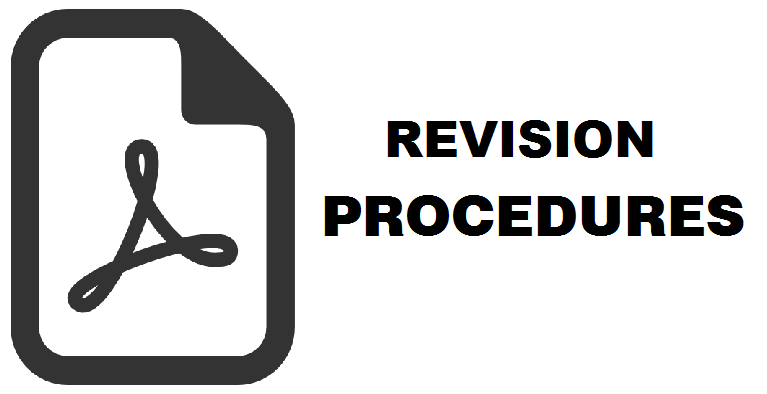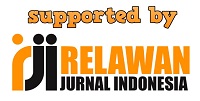Analisis Sitiran Terhadap Jurnal Fihris Tahun 2008 dan Ketersediaan Koleksi di Perpustakaan UIN Sunan Kalijaga Yogyakarta
Fauzan Dwi Kurniawan(1*)
(1) Alumni Fakultas Adab, UIN Sunan Kalijaga Yogyakarta
(*) Corresponding Author
Abstract
Make a research and write a scientific paper should be used as reference material reference of a study. References must be included in writing in the form of research bibliography. The development of library collections will take place either if the library held a collection of materials relevant to users need. Therefore, the library should know what type of literature is needed and whether there already in library. The research objective is to: (1) Determine what type of literature cited in the Journal Fihris year 2008 and what is the dominant type of literature cited, (2) Language of literature what is quoted in the Journal Fihris 2008, (3) Availability literature cited at Library of UIN Sunan Kalijaga Yogyakarta.
This research is descriptive with research subjects is Fihris Journal in 2008 that amounted 2 journal with 20 article titles. While the subject of this research is all artcles in Journal Fihris 2008 that is 314 citation. This research method using interviews, observation, and documentation with the application of citation analysis methods. The data were analyzed deskripstif, where the data obtained were tabulated, analyzed the data based on percentages and presented in tabular form.
The results showed there were 11 types of literature in the Journal Fihris 2008 with details: the book as much as 131 (41.72%), followed source of the Internet 114 (36.31%), journal 26 (8.30%), papers and research reports 24 ( 7.64%), dictionary 5 (1.60%), manual 5 (1.60%), encyclopaedia 3 (0.95%), magazine 3 (0.95%), glossary 1 (0.31%), law 1 (0.31%), and the thesis 1 (0.31%). There are two types of language used. That’s is english and Indonesia, with details 186 (63.49%) English and 107 (36.51%), Indonesia.Availability of a collection of 185 titles were 43 (27.21%) and is not available is 142 (72.79%).
Recommended for procurement of improved collections, technical training citing sources from the Internet held, and English language training improved.Keywords
Full Text:
PDFReferences
Arikunto, Suharsimi. 2010. Prosedur Penelitian: Suatu Pendekatan Praktik edisi Revisi 2010. Jakarta: Rineka Cipta.
Evans, G. Edward and Zarnosky, Margaret R. 2000. Developing Library and Information Center Collections. Libraries Unlimited. Englewood, Colorado.
Martono,Nanang.2010. Metode Penelitian Kuantitatif: Analisis Isi dan Analisis Data Sekunder. Jakarta: Raja Grafindo Persada.
Maryono. “Impact Factor : Penghitungan dan Kontroversinya”. Dalam www.lib.ugm.ac.id/data/pubdata/pusta/maryono.pdf. Diunduh pada 05 Mei 2011, Jam. 23.14.
Nasution. 2006. Metode Research. Jakarta: Bumi Aksara.
Nawawi, H. 2007. Metodelogi Penelitian Bidang Sosial. Yogyakarta: Gadjah Mada University Press.
Saleh, Abdul Rahman. 1996. Pengelolaan Terbitan Berseri. Jakarta: Universitas Terbuka Depdikbud.
Septiyantono, Tri dan Umar Sidik. 2003. Dasar-Dasar Ilmu Perpustakaan dan Informasi. Yogyakarta: Jurusan Ilmu Perpustakaan dan Informasi, Fakultas Adab.
Sugiyono. 2008. Metode Penelitian Pendidikan: Suatu Pendekatan Kuantitatif, Kualitatif dan R&D. Bandung: Alfabeta.
Sulistyo-Basuki. 2002. “Bibliometrik, Sainsmetrik dan Infometrika”. Dalam Makalah untuk Kursus Informetrika, diselenggarakan oleh Masyarakat Informetrika Indonesia, 20 s.d. 23 Mei 2002
Surata, I Gede. 1997. “Karakteristik Literatur yang Disitir dalam Skripsi Jurusan Ilmu Politik Fakultas Ilmu Sosial dan Ilmu Politik Universitas Hassanuddin dan Universitas Indonesia tahun 1991-1995 (Tesis)”. ProgramPascasarjana Universitas Indonesia, Jakarta.
Yulia, Yuyu. 1993. Pengadaan Bahan Pustaka. Jakarta: Universitas Terbuka Depdikbud
Article Metrics
Refbacks
- There are currently no refbacks.
Copyright (c) 2015 Berkala Ilmu Perpustakaan dan Informasi

This work is licensed under a Creative Commons Attribution-ShareAlike 4.0 International License.











